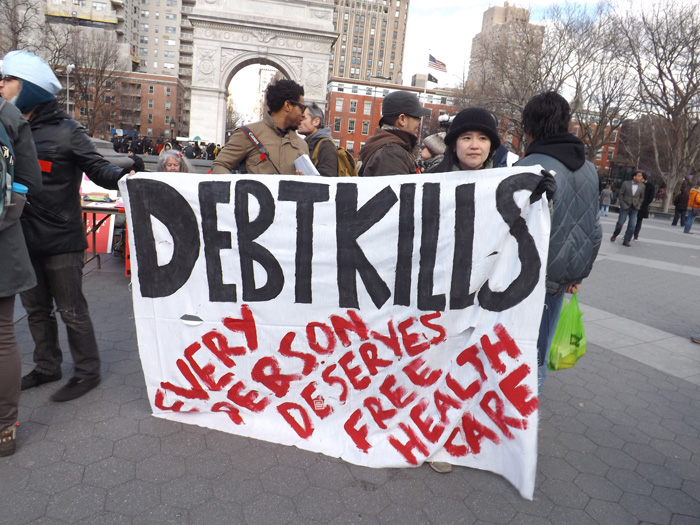Major financial crises have always left huge amounts of debt in their wake, followed by incidents of nonpayment. Occasionally the reduction of debt has been concealed, as in the case of Germany, which, thanks to an annual inflation that averaged 17% from 1913 to 1950, reduced the value of its domestic debt to almost zero.
This practice is now forbidden for borrowers in the eurozone, as stipulated by the price stability mandate given to the European Central Bank (ECB). This restrictive policy, which so greatly hinders the recovery of debtor countries, is designed around a basic principle: debts must be paid. However, I believe that argument is debatable, and those who defend it should not have the last word.

Pedro Solbes, European Commissioner for Economic and Monetary Affairs from 1999 to 2004, once told me an anecdote about a long negotiation between the representative of a European institution and a dignitary from an African country. With the two sides having already gone back and forth numerous times, the African turns to the European while discussing a particularly delicate issue and says: I realize now that Westerners also have taboos. It’s just that you call them principles.”
The mistake of letting a taboo become a principle
One definition of taboo is an interdiction or prohibitory decree of a religious nature that plays a protective role in societies where it is in effect. There is no doubt that the obligation to pay one’s debts serves the function of a taboo by protecting the creditor. Prohibition is intended to be a universal moral principle, and from my perspective, this is what makes it a taboo.
The rule that establishes the obligation to pay debts is extremely useful, as it streamlines the flow of commercial transactions. But, like any practical rule, there are certain exceptions. It must yield to other demands of social order.
They take a backseat to true moral principles and when an attempt is made to elevate a practical rule to the status of moral category, it is stripped of all rational defense, and it becomes “a ban (…) based on some irrational prejudice”: a taboo.
The commercial realm ought to be governed by greater needs

In the current crisis, we seem to have forgotten that the business world cannot be a model for all orders of coexistence . While it is important to satisfy the needs of the market, they are not the only needs that must be considered. There are other realms with needs, which should be considered superior, and whose principles must be given precedence.
In the case we are studying here, the excessive indebtedness of families, companies and countries has become a long and painfully slow absorption of the mass of unemployed caused by the crisis and the ensuing recession, not to mention the human suffering that goes along with it. Considering the atmosphere of widespread uncertainty, it is quite possible that the stability of the European Union itself is at risk.
So much hardship could have been spared — though by no means entirely avoided — if debtors and creditors from the outset had negotiated in good faith for a more equitable distribution of risk based on everyone’s capabilities.
And the most serious of all may actually be that the management of the debt crisis has damaged relations between members of the eurozone , as the debtor countries have been inaccurately portrayed to the general public in the creditor countries, with the aim of creating a state of opinion against any award, whether real or perceived, in this realm. It should be obvious that in these circumstances the obligation to pay has been sacrificed when it comes to higher-order goods , which may be hard to recover.
Perhaps at this point it is too late to rectify, and that patience will be required. It is possible, although I don’t know how probable, that we may dig deep to find strength and use the hardships to fix some of the outstanding problems that we are facing. In any case, this situation should not only teach us to be prudent in our finances, but also serve as a warning for us whenever business practices are disguised as moral rules, or taboos are labeled as principles.
Edition of the article published in La Vanguardia on September 16, 2014



This blog article from IESE School of business does an autopsy on the recent economic crisis in the European market and provides some idea of prevention from further damages.